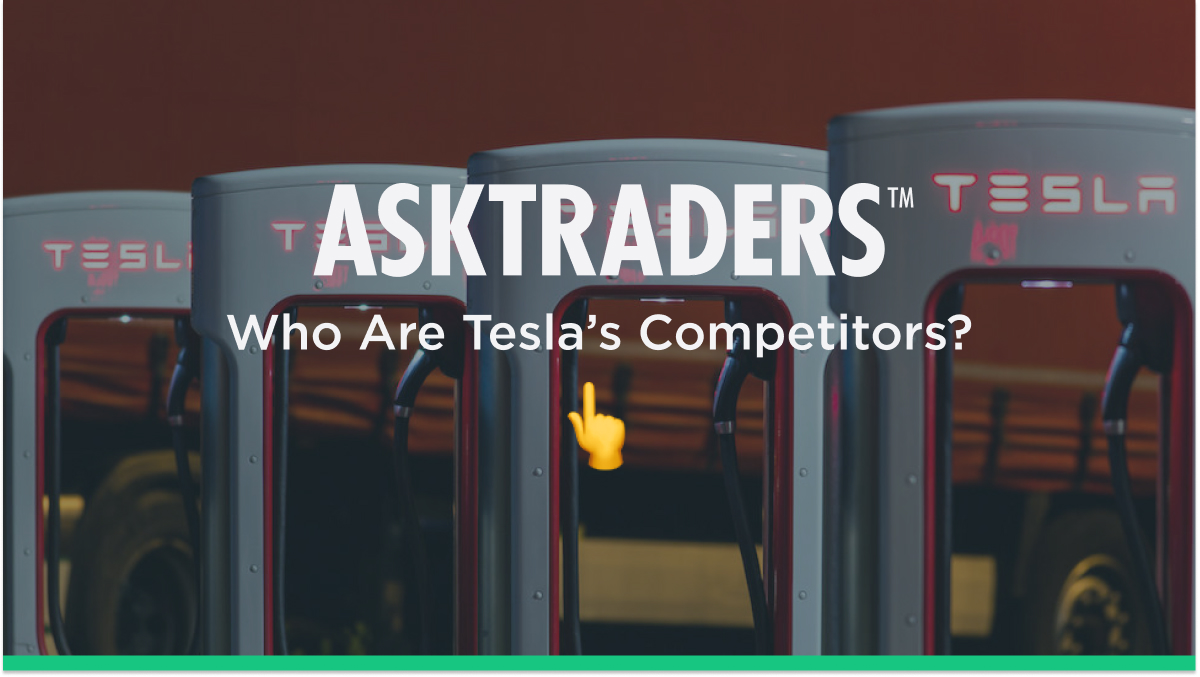Tesla’s stock (TSLA) continues to garner huge attention, and since the U.S. Presidential election results has continue to press on, with gains of more than 35% through 2024 signifying a huge turnaround after a difficult first half of the year. With such an expanding business, we are going to look at Tesla’s competitors, or alternatives mainly from an EV perspective.
Who is Tesla?

Whilst Tesla is thought of as an EV company, the reality is that the company does so much more. Other markets where the firm compete, or will be likely to compete in the future include the renewable energy sector (energy storage, solar energy), and the tech sector at large including themes such as AI, autonomous driving, EV infrastructure, and software.
If ever there was a truism in the world of global commerce, it would be that when someone is hugely successful in capturing a market, there will be a host of competitors created nearly overnight to copy an already proven strategy. Elon Musk is now one of the richest men on the planet – an inspiring success story that has generated much press and inspired others to compete aggressively for market share in his space.
From its California base, Tesla, Inc. has managed to take pole position in the race to become the brand synonymous with electric vehicles (EVs). The firm, which was founded in 2003, has become the global brand leader for the EV sector thanks in part to Musk’s high profile, which has come under the spotlight of late due to problems with his Twitter acquisition. Nevertheless, eager competitors have appeared on the scene while Tesla is back peddling, each one hopeful of snapping up market share in one of the hottest markets in the world.
Tesla Alternatives
The scale of Tesla’s business, and the potential lead they have in autonomous over almost all others, with the exception of Google’s Waymo, means we are more looking at alternatives than direct competitors at this stage. The below EV competitors could mount significant challenges to the firm’s current dominant market share positioning, but as the business of Tesla continues to develop, there will be new markets that may prove to be even more lucrative. Tesla’s stock at the moment is clearly not only valued as an automaker, the multiple it garners is simply too high, so the markets are clearly looking to the future.
Tesla competitors have good reason to be targeting the market. According to Deloitte’s global EV forecast, total EV sales will grow from just 2.5 million units to over 11.2 million units in the five years between 2020 and 2025. In addition, the strong political support for carbon reduction efforts means that it’s only a matter of time until the infrastructure required to support EVs reaches a tipping point. At that time, the EV market can be expected to experience exponential growth.
Don’t forget to consider the technical and fundamental factors, which need to be incorporated into any analysis of Tesla’s competitors. Using those two factors in conjunction can help identify not only which stock to buy, but also when to buy. If you want to invest in EV stocks but think that the Tesla share price is overhyped, then the below list is for you.
BYD (OTCMKTS: BYDDY)
BYD has experienced very impressive growth in the EV sector, even surpassing Tesla in quarterly sales for the first time. In Q3 2024, BYD reported revenues of $28.2 billion, exceeding Tesla’s $25.2 billion. This success is attributed to competitive pricing, expansion into luxury models, global market penetration, a strong hybrid vehicle lineup, and vertical integration strategies.
While Tesla remains a dominant force, BYD’s rapid growth into an industry leader, able to penetrate the Chinese and European EV markets underscores the dynamic and competitive nature of the industry.
NIO Inc (NYSE: NIO)
China-based NIO Inc has generated sufficient attention among investors to be tradable in ADR form on the New York Stock Exchange (NYSE). The company saw its share price slide dramatically throughout 2021 as supply chain problems and rival firms threatened its growth. Unfortunately, the slide continued in 2022 – there was a severe drop from $60+ down to just below $12. It has been punished much more than Tesla, suggesting that a possible turnaround might be in the offing.
NIO’s share price has suffered from Chinese COVID-19 lockdowns, but followers of this stock are very bullish at the moment. The firm shipped more than 14,000 units last month, and it has built a presence in Europe for additional international expansion.
Ford Motor Co (NYSE: F)
One of the rivals posing a threat to NIO is Ford Motor Co. Its accelerating share price illustrates how the firm, which was playing catch up, has turned things around thanks to plans to invest $30bn in EVs by 2025. These plans are forecast to result in 40% of Ford sales being EV-based by 2030.
Investors tend to be sceptical of the major car manufacturer’s commitment to the EV phenomenon, but retail sales have recently jumped by over 79%. Ford’s plans are ambitious in that it is ramping up EV capacity to 2 million units by 2026 and locking down deals for necessary components in the future.
Li Auto (NASDAQ: LI)
Formerly Leading Ideal Inc, Li Auto changed its name in July 2020, with ADRs appearing on the Nasdaq at the same time. The firm is headquartered in China and has been in operation since 2015. It designs, manufactures and sells EVs primarily in the People’s Republic of China. The company has struggled with a slowdown in deliveries due to COVID-19 restrictions in China.
This slowdown resulted in a 50% diminution in the share price of LI stock, but the firm still has support from a cadre of analysts. The company has a market cap of $22.8bn, but it has yet to turn a profit. The performance outlook, however, is positive, as management is predicting that it will produce earnings within the next year, ahead of such rivals as NIO.
Lucid Group Inc (NASDAQ: LCID)
Lucid is a American pure-play on EVs and is targeting the luxury end of the market. Customers spending over $100,000 on a car demand quality, and this has inspired Lucid to develop vehicles that are collecting reviews that are little short of staggering. The firm is also pushing technological boundaries. The Air Dream edition has recorded an official EPA mileage rating of 520 miles on one charge, which smashes one of the major obstacles to EV adoption and surpasses most Tesla models.
The firm’s management team comes from Tesla and has focused on the luxury niche of the market. Supply-chain issues have driven stock prices to recent lows. Production data is encouraging, and the Kingdom of Saudi Arabia is providing capital for its eventual recovery. Lucid’s stock price is down heavily from highs, and the past year has not been kind to holders, but the luxury nature of the vehicles may stand the firm in decent stead should subsidies lapse with the target market less prone to pricing pressures.
Rivian (NASDAQ: RIVN)
Rivian is a US-based firm that entered the EV market in the last few years. It is an early-stage company bet. It sells directly to consumers and has been meeting production targets. Rivian’s previous quarter posted a 67% increase in units coming off the assembly line, but supply chain issues have plagued the firm’s stock.
Have RIVN shares been beaten down too far? The firm expects to be a leader in the SUV segment in five years. Observers see the recent decline as a buying opportunity.
The recent deal with Volkswagen has put some additional focus back on Rivian, and this is likely one that we will still be talking about in years to come.
Final Thoughts
Tesla’s EVs have taken the market by storm and made the firm’s owner a very wealthy man.
For TSLA stock valuations, there is one other unique factor that its competitors do not have to deal with: the ‘Elon Musk brand’. Musk’s acquisition of Twitter was tarnished with controversy at every turn, but with the alignment in incoming President Trump’s government seemingly firm, there could be further upside.

For the EV industry as a whole, what are the major challenges to be overcome in both the near and long term? Presently, Deloitte sees four factors that will drive future growth:
- Consumer Sentiments: If significant growth is to materialise, then consumer attitudes regarding EVs must change. Concerns of driving range and charging locations top the list.
- Government Policy/Legislation: For fuel economy and emission targets to be reached, major governments will need to impose restrictions on fossil-fuel vehicles and promote EVs.
- New EV Entrants: New entrants to the industry are creating more models than previous projections anticipated. Affordability will matter, but premiums will persist.
- Corporate Sentiments: For growth to accelerate, businesses will need to convert existing fleets to this new technology or target policies that place incentives on their usage.




